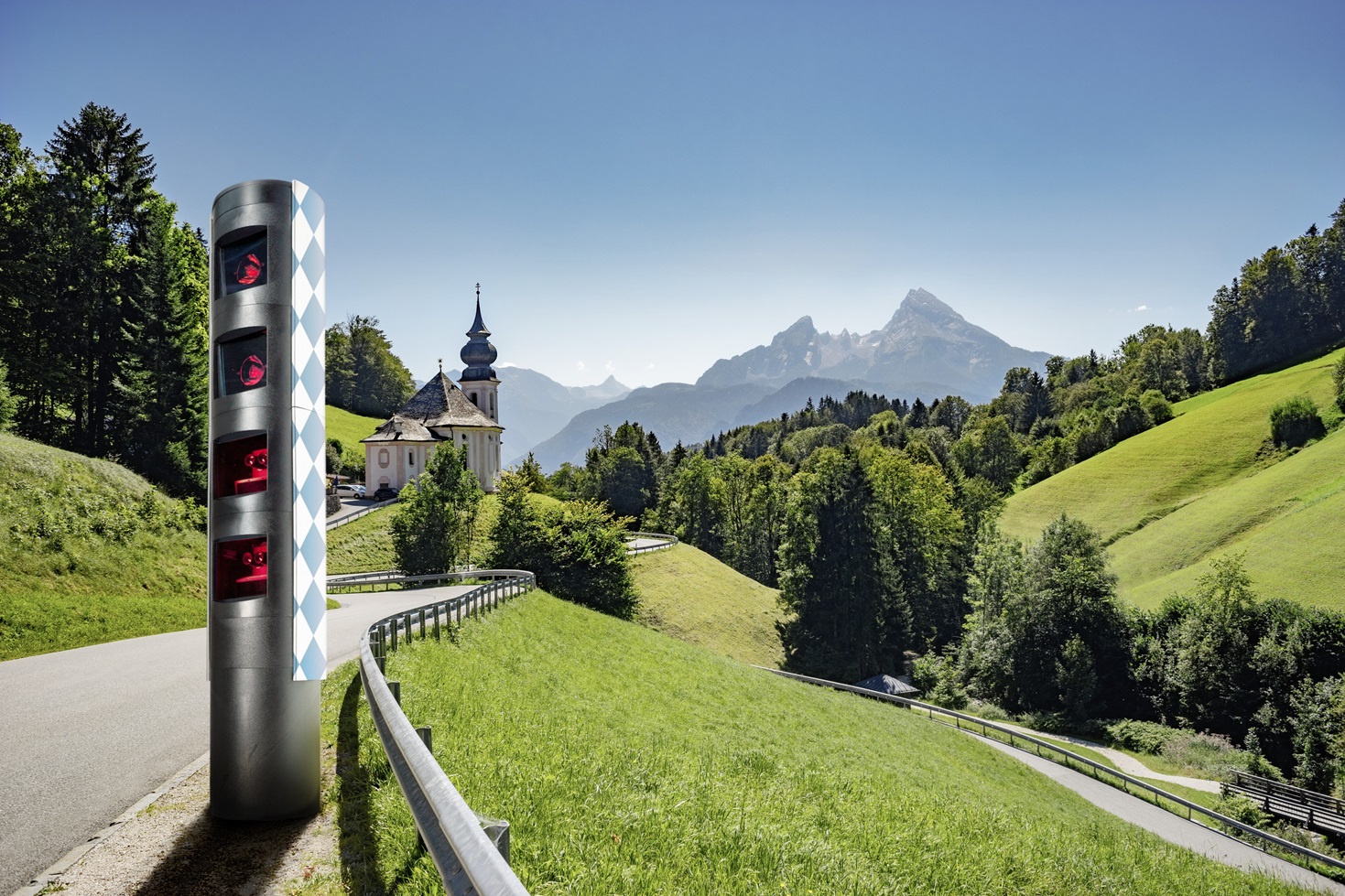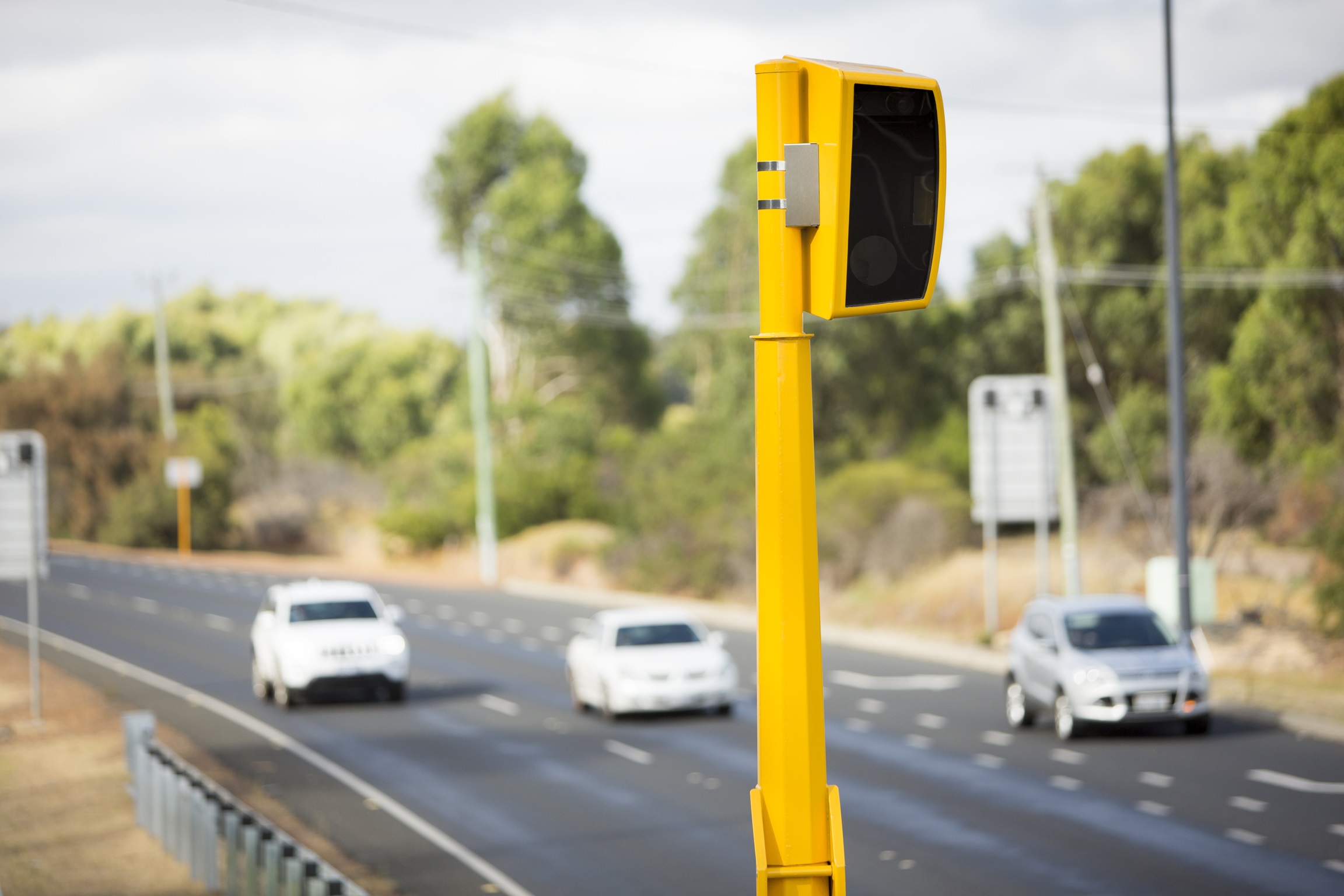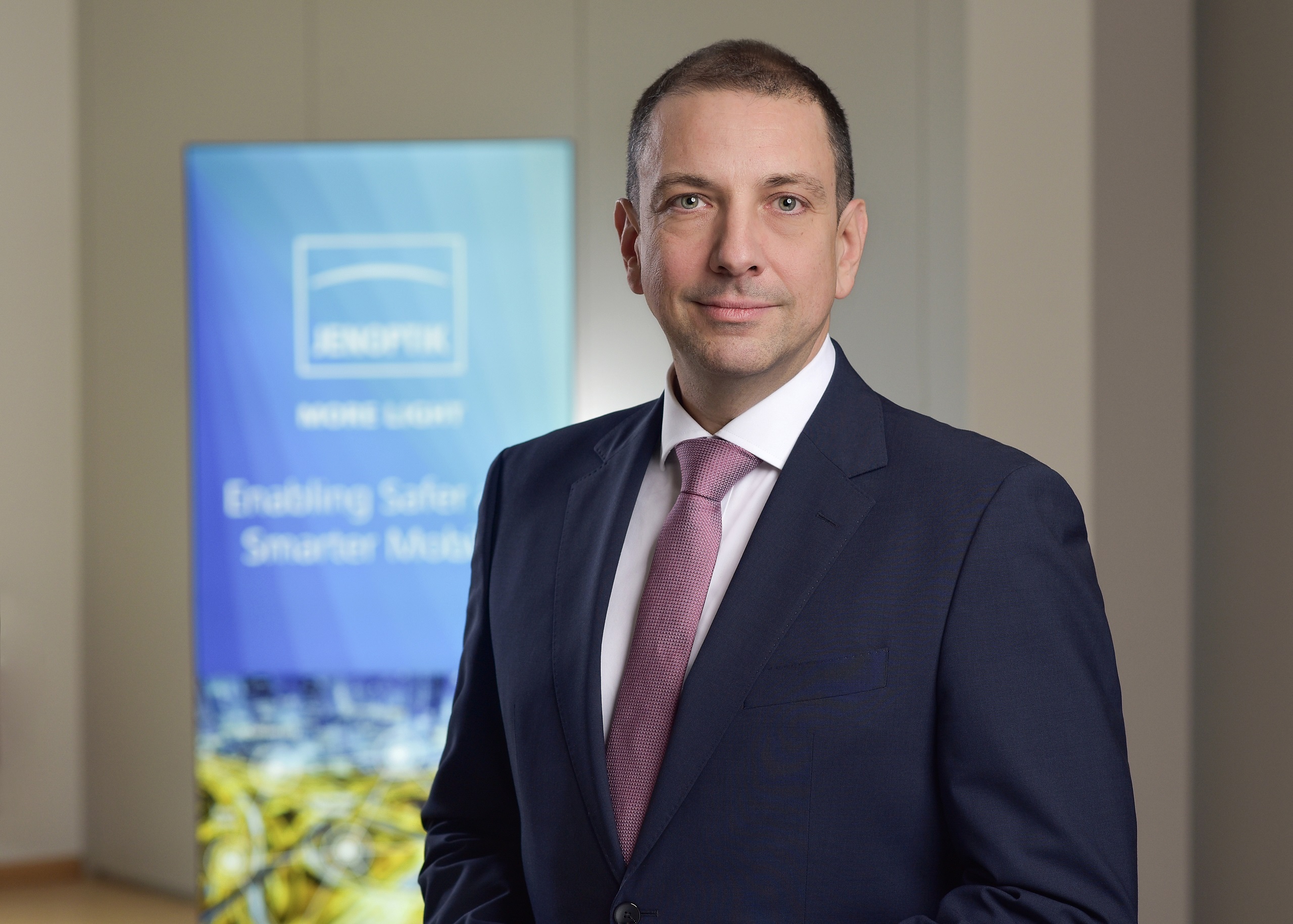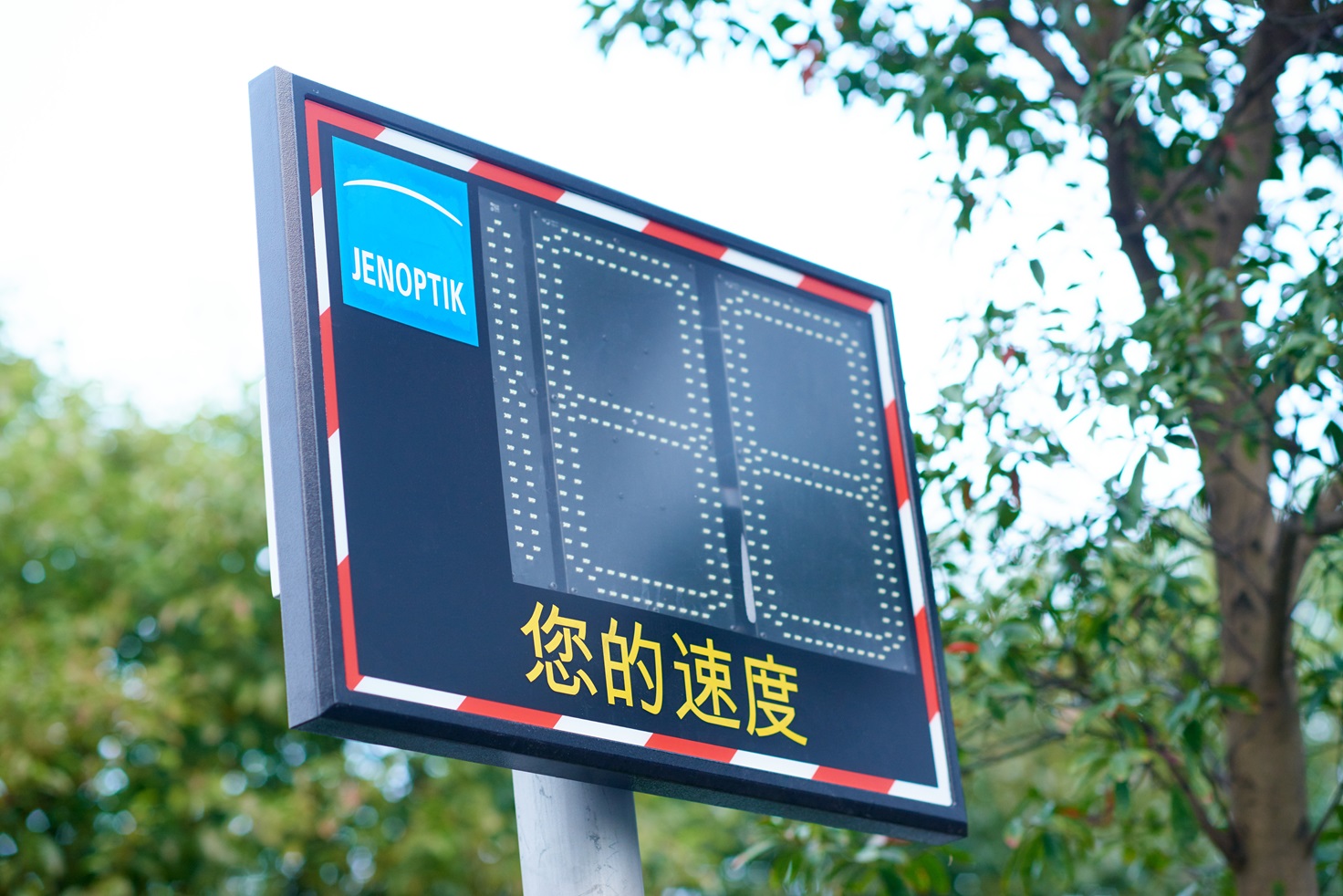
All over the world - from Europe and the US, to Latin America, the Middle East, Africa and Australia - Jenoptik’s smart camera solutions are used for traffic enforcement work including red-light running, speeding and intersection safety.
For Tobias Deubel, head of Jenoptik's Smart Mobility Solutions division, this global reach is partly down to the company’s longevity. “On the one hand, I think this is due to us being around for 90 years now,” he smiles. “The business has expanded and grown, and international growth is part of our story and strategy.”
Jenoptik is particularly strong in its traditional European markets such as Germany and the UK, but these are – relatively speaking – becoming saturated. New opportunities exist in emerging markets, for instance in parts of the Global South, where increased road infrastructure building brings with it challenges in terms of managing traffic and preventing collisions and fatalities.
“There is a huge demand in these markets, like Latin America, for example, or Africa, where we are nowadays quite active,” says Deubel. “There’s growth potential, that's for sure.”

As a market, Africa is vast and diverse. Deubel flatly refutes the idea that African countries are often looking for cheaper, low-end solutions. “My experience is that is completely not true,” he insists. “For example, in Nigeria they are interested in the latest technology, they want high-end products. But they need more: there is no network of companies that provide these solutions so we are really at the forefront with our partners.”
Public-private partnership tends to be important here, with emerging markets often interested in the full value chain and comprehensive solutions rather than just purchasing hardware. “It’s one thing detecting the incident at the roadside, but then there's a whole process of processing the picture, invoicing, collecting the money and everything,” he explains.
Creating international partnerships
Operating in a number of countries is attractive, but there are practical differences doing business in, say, the UK and Ecuador or Nigeria in terms of logistics, culture, market maturity and language. So how does an international company oversee the creation of the right attitude and approach across different continents?
“First of all, I think it's really important to build a strong partner network and to look after your partners,” insists Deubel. “We're really in close contact with our partners and we are quite open and transparent with them, we educate and train them. We disclose every technical detail about our systems to enable them to provide the best service to their customers.”
Attempting to conduct international operations centrally is unlikely to be a recipe for success; some degree of local autonomy in decision-making makes sense. “We allow our partners and our local entities to be a bit more flexible, to customise and localise our products,” Deubel explains. “In our industry, every country - every customer - is slightly different. You just cannot build one product and sell it all over the world. There are slightly different requirements when it comes to software, when it comes to local legislation, so there needs to be this last 5-10% tweaking and customising to the system. And to me it's really important that we have strong partners that are able to do this.”
Support then comes from central units in, say, Germany and the UK, where partners can access technical, engineering and R&D expertise.
Identifying partners with whom you can work long-term is a complex business, involving significant amounts of due diligence. But Deubel says it is common for Jenoptik to have long-standing relationships. (He describes a partner event at Intertraffic Amsterdam 2024 as being “like a family meeting somehow”, for example): “There are people that we’ve known for 20 or 30 years sometimes, which is really nice. All our projects are very long-running and customers expect us and our partners to be available for at least five to 10 years once they buy a system.”

As well as a direct sales function, selling systems to end customers, Jenoptik also has a team of area sales managers who support and manage partners. “They literally do market analysis, market intelligence, they understand the local markets,” Deubel explains. “They find partners if we need new partners in new places. The area sales managers are very experienced, so they understand within our industry what is important when it comes to partnerships.”
Following a formal process of financial and legal checks, the first step is usually a pilot project. Given that ITS technology is well-developed and products within the industry are often roughly comparable in many ways, unique selling points can be hard to come by: this means that customer service can be a key differentiator.
“In our industry, the main USP is trust and personal engagement of the people that are involved,” Deubel says. “As I said, all these projects are about five years, 10 years or even longer. And it's an investment, always, for the partners as well as for us: if you sign a contract and accept maintenance periods and spare part availability for 10 years, that is an upfront investment so you need to be absolutely sure you're dealing with the right people. And therefore I personally see this very much as a people and relationship business.”
That said, you won’t have a good relationship with anyone if the technology isn’t right. “It's got a lot to do with trust and relying on each other and being open,” he continues. “There's nothing better than experience. That makes a difference. You can't cover missing features or missing technology just with trust - but the trust and experience part is a key differentiator to us. But of course you are right: if the customer wants speed enforcement or red-light [enforcement], or some feature requests, you have to deliver this.”
Above all, customers in sectors such as traffic enforcement – e.g. police forces or city authorities – require reliability. Jenoptik’s type approvals mean that “everybody knows that these systems are 100% rock solid”, Deubel says.
AI and the future
The ITS and vision sectors are always evolving, of course. Like every other company in the sector, Jenoptik is interested in the possibilities of artificial intelligence. “We're developing new features using artificial intelligence, of course,” says Deubel. “AI for us opens a whole new field of features and a whole new variety of opportunities.”
Using camera and sensor technology such as loops or radar or Lidar to identify behaviour such as speeding is one thing: but there is a limit to what you can enforce. The convergence of technologies will create new pathways.

“These sensors are really important, still, to us because they provide the accuracy and the reliability that we need,” insists Deubel. “But detecting objects and then understanding a scene - that is where AI comes into play.”
AI is not new, of course, but its rapid development means we seem always on the brink of something new in terms of AI’s applications – so are we anywhere near finding the limits of AI? “That's a really difficult question, to predict what I will be able to do in the future,” Deubel smiles. “I think you can't really say we have reached a limit. There will be new features and new possibilities and new things in the future that you probably don't even think about for the time being.”
When it comes to traffic management and enforcement, the rise of autonomous vehicles throws up some potentially interesting challenges to the market. “You could easily think: ‘Well, if all cars are autonomous they won't speed, they won’t jump red lights, so it shouldn't be an issue anymore’,” Deubel muses. “The thing is, from my perspective, there's a long time ahead where there will be autonomous and non-autonomous vehicles [on the road together].”
That being the case, enforcement technology such as Jenoptik’s will remain hugely relevant, whatever developments there are in the future.
“What we can see from all the statistics, where you make use of our technology, numbers of fatalities are reduced so there will always be a need for this,” he says. “For the time being, we focus on law enforcement and what we're really good at, and trying to grow the company more internationally.”











